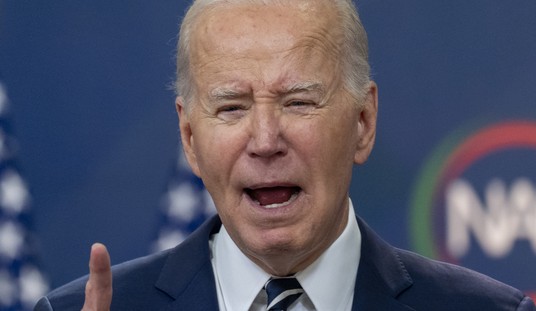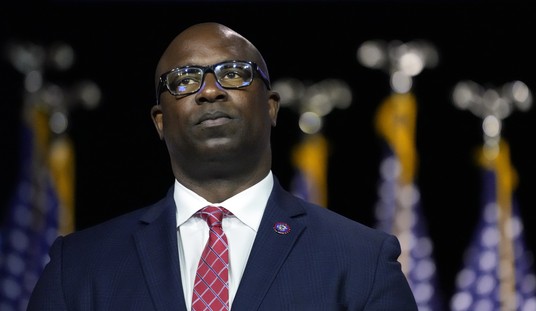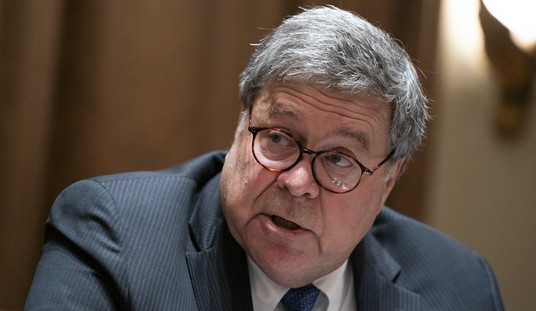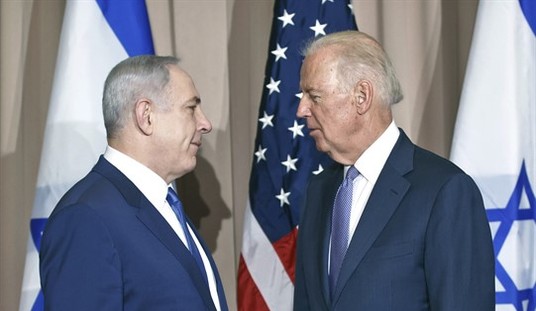Did former governor, now university president, Mitch Daniels seek to censor the late Howard Zinn, a Communist prof who wrote the anti-American bestseller A People’s History of the United States? No, but that’s what the AP suggested. “Mitch Daniels looked to censor opponents,” ran the headline. “[E]mails obtained by The Associated Press show Daniels went out of his way during his second term as governor to destroy what he considered liberal breeding grounds at Indiana’s public universities.” The second bit appears to be true. And congratulations to Mitch Daniels for his efforts at swamp-clearing. Public universities should not be breeding grounds for any ideology, Left or Right.
The AP writer doesn’t get that, of course. But it’s important that more dispassionate souls recognize that there is no connection between Mitch Daniels’s effort to depoliticize the university system in Indiana — a task that, given the ideological complexion of American higher education, meant showing leftists (the AP calls them “liberal,” but actually they are illiberal leftists) the door — there is no connection, I say, between that effort and the “censorship” he was alleged to have been engaged in.
The AP story is a sort of hit job, intended to discredit Daniels, who is coming up for his six-month review as head of Purdue University. Its actual effect, on me, anyway, was to increase my already high esteem for the man. Here is a chap that not only saved the state of Indiana from the fiscal nightmare that leftist-run states like Illinois and Michigan are suffering (remember Detroit?), but he is also someone who can spot a Communist fraud at 100 paces and isn’t afraid to say that left-wing propaganda is not the same as history and should not be purveyed as such on the taxpayer’s dime. Zinn’s book, wrote Daniels in one of those emails, “is a truly execrable, anti-factual piece of disinformation that misstates American history on every page.” That’s exactly right. Also right were Daniels’s efforts to remove it from the curriculum: “Can someone assure me,” he asked “that it is not in use anywhere in Indiana? If it is, how do we get rid of it before more young people are force-fed a totally false version of our history?”
Turns out it was being taught at Indiana University, but that’s hardly a surprise. Zinn’s exercise in anti-American agit-prop — the historian Oscar Handlin called it a “deranged fairy tale” — is far and away the bestselling book of American history in the country. It has sold more than 2 million copies and is used in high schools and colleges across the country. Again, Daniels’s response was spot on: “This crap should not be accepted for any credit by the state. No student will be better taught because someone sat through this session.” (Readers interested in a fuller version of my take on Zinn can find it in this piece for National Review.)
Note well, Daniels doesn’t say Zinn’s book oughtn’t to be allowed to be published. He doesn’t want to censor the book. He merely says it shouldn’t be taught as history. He would, I’d wager, say the same thing about The Protocols of the Elders of Zion. And he’d be right.
The Left is skirling that Mitch Daniels wants to deny academic freedom. No, he wants to support it. But he understands that academic freedom is not a license to engage in political propaganda. It is the freedom to pursue the truth. This is a point that Peter Wood, president of the National Association of Scholars, gets exactly right. “Academic freedom,” Wood writes in a column on the controversy for The Chronicle of Higher Education, “is a principle that thrives only when it is sturdily woven together with academic responsibility. That’s what Daniels in his plain-speaking e-mails called for.”
It’s worth pausing over Wood’s observation about academic freedom. First, note that free speech — the right to peaceful political dissent — is not the same thing as academic freedom — the more limited right to pursue, teach, and publish about the truth. This is a distinction that is often elided. As the sociologist Edward Shils wrote in an important essay on the subject, academic freedom is “the freedom to seek and transmit the truth.” It does not, he noted, “extend to the conduct of political propaganda in teaching.”
Academic freedom is the freedom of university teachers to perform their academic obligations of teaching and research. These are obligations to seek and communicate the truth according to “their best lights.” Academic freedom is not the freedom of academic individuals to do just anything, to follow any impulse or desire, or to say anything that occurs to them. It is the freedom to do academic things: to teach the truth as they see it on the basis of prolonged and intensive study, to discuss their ideas freely with their colleagues, to publish the truth as they have arrived at it by systematic methodical research and assiduous research.
“That,” Shils concludes, “is academic freedom proper.” A number of corollaries follow. One is that one assess academic things according to academic or intellectual criteria, “regardless of the person’s political or religious beliefs, his or her sex, ethnic origin, personal qualities, kinship connections, friendship or enmity toward the individual or the work assessed.” It also follows that academic freedom is limited in certain ways. For example, “An academic is not free to falsify the record of his observations; he is not free to forge or misrepresent the contents of documents and inscriptions.” Shils also goes on to argue that although “academic freedom includes political freedom,” it is nonetheless “desirable that teachers should not expound their own political or moral preferences and values in their classes,” and, if they do, that “they should take care to distinguish evaluative judgments from their statements of fact.”
The distinction between free speech and the more limited privilege of academic freedom is not novel. But it is one that many well-meaning people have difficulty wrapping their minds around. Our society provides many outlets for the expression of political opinions. Thank God for that. It has also taken care to provide for educational institutions whose purpose is learning, scholarship, and pedagogy. Academic freedom is not the same thing as free speech. It is a more limited freedom, designed to nurture intellectual integrity and to protect those engaged in intellectual inquiry from the intrusion of partisan passions. The very limitation of academic freedom is part of its strength. By excluding the political, it makes room for the pursuit of truth.
This is a point that is articulated well by the late Kenneth Minogue in his book The Concept of the University.
Universities were based, like all social institutions, on something valued—on a “value judgment,” to use the current jargon. They were based (if I may use an old formula) on “the disinterested pursuit of truth.” It was this pursuit, as it were, that constituted the moral basis of their authority. They had no direct concern with justice, and no one was ever sent to a university to make him courageous. Their excellence was to be found in their limits. Academia dealt in the virtues of truth and exactitude.
What happened? In the 1960s, universities collapsed “in the face of a little juvenile swagger.” They never recovered, most of them, and we continue to reap the fruits of that moral and intellectual dégringolade. We owe an enormous debt of gratitude to those (alas, few) public figures who, like Mitch Daniels, have both the wit and the courage to buck the PC-tide and stand up for truth amidst the mephitic currents of left-wing propaganda purveyed by ideologues like Howard Zinn.








Join the conversation as a VIP Member